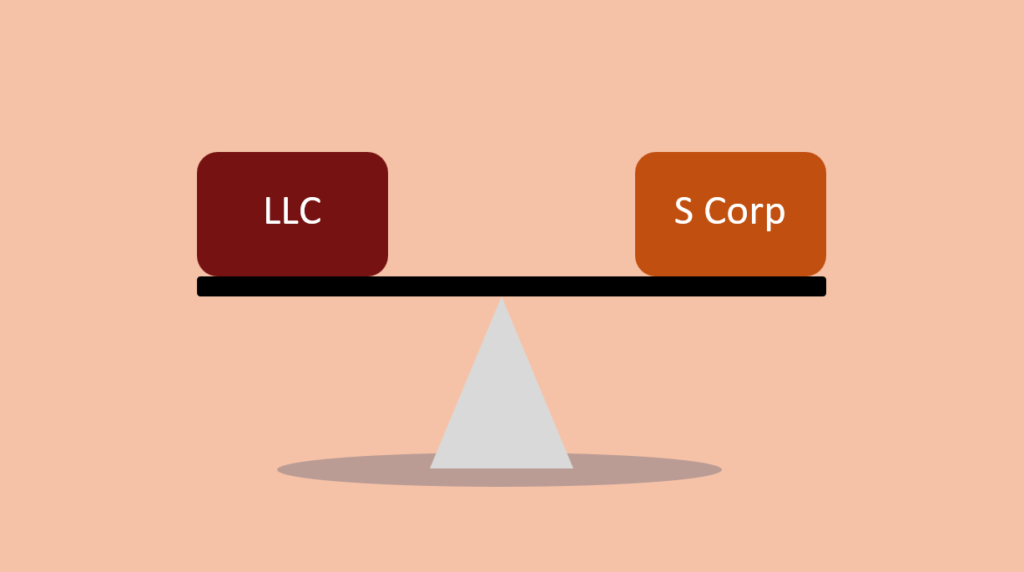
Tax and Accounting Services
About DuPage Tax Solutions
DuPage Tax Solutions is located in Naperville, IL. Our clients are mostly residents and small businesses within the Chicago metropolitan area – DuPage, Cook, Will, and Lake counties. Our remote work capabilities allowed us to extend our services nationwide. Today, we pride ourselves in having clients from all 50 states. Our virtual services are fast, easy, and convenient. Clients submit and review documents electronically through our secured online portal.
S Corp and LLC: Pros and Cons

S Corporations (S Corps) and Limited Liability Companies (LLCs) are two popular business structures that have pros and cons. Choosing the right entity depends on your specific tax situation and business goals.
Home » S Corp and LLC: Pros and Cons
The Common Advantages of an S Corporation and LLC
Both S Corps and LLCs share key benefits that make them attractive options for business owners:
- Pass-Through Taxation: Neither entity pays federal taxes at the business level. Instead, profits pass directly to the owners, who report the income on their personal tax returns. This structure avoids double taxation, a common drawback for traditional corporations.
- Personal Asset Protection: Both structures provide personal liability protection, meaning that in the event of a lawsuit or business debt, creditors cannot seize your personal assets.
Pros and Cons of an S Corporation
Pros
Self-Employment Tax Savings: One of the standout advantages of an S Corp is the potential to eliminate self-employment taxes that typically apply to single-member LLCs. This can lead to significant tax savings for business owners.
Easy to Transfer Ownership: Ownership changes can easily happen when owners sell company stock. As a result, the business can proceed without much disruption. Note that S Corporations are limited to 100 shareholders.
Potential Tax-Free Distributions: S Corporation owners can receive tax-free distributions up to their basis in the company. However, S Corp owners are required to receive a reasonable salary from their business at some point, especially when profits and distributions are high.
Cons
Additional Formalities: Establishing an S Corp involves more paperwork. You must not only form an LLC but also file Form 2553 to elect S Corp status with the IRS.
State-Level Taxation: While S Corps do not pay taxes at the federal level, some states treat them as traditional corporations, subjecting them to state-level taxes. Always check with your local Secretary of State’s office for specific regulations.
Separate Tax Filing Requirements: S Corps require a separate tax return, which is additional paperwork.

Pros and Cons of an LLC
Pros
Flexible Tax Treatment: LLCs offer versatile tax options. A single-owner LLC is treated as a sole proprietorship, while a multi-member LLC defaults to partnership taxation. Additionally, LLCs can elect to be taxed as C or S Corporations if desired.
Simplified Tax Preparation: If you’re the sole owner of an LLC, you won’t need to file a separate business tax return, simplifying the tax preparation process.
Easy to Form: Minimal paperwork is involved to form an LLC. Generally, to start one, you need to file Articles of Organization with your state and pay a filing fee.
Cons
Limited Financing Options: Since LLCs do not issue stocks, attracting outside investors can be challenging. Traditional bank loans are often the most viable financing option.
Self-Employment Taxes: Single-member LLC owners are subject to a 15.3% self-employment tax, covering Social Security and Medicare taxes.
Risk of Personal Liability: Although LLCs provide personal asset protection, failing to keep business and personal finances separate can jeopardize that protection. It’s crucial to maintain clear boundaries between business and personal transactions.
How Should I Decide Between an S Corp and LLC?
Ultimately, both S Corps and LLCs offer valuable benefits, including asset protection and favorable tax treatment. The choice between them hinges on your personal tax situation and business goals.
To determine which entity aligns best with your needs, consider consulting DuPage Tax Solutions who can provide tailored guidance based on your specific circumstances. With the right support, you can choose a business structure that helps you thrive while protecting your personal assets.
You May Also Like These


Top Tax Mistakes Business Owners Make

Cash Flow Made Simple

Home Office Tax Rules to Know
Ready to Take Control of Your Finances?
Contact us today for personalized tax, accounting, and advisory services tailored to your needs. Let’s work together to achieve your financial goals!

Contact Info
Ph. (630) 909 9700
Email: DPTax@DP-Tax.com
Mail address:
1552 Illinois Rte 59 #1037
Naperville, IL 60564
Business Hours
Mon: 11 am – 7 pm
Tue: 11 am – 7 pm
Wed: 11 am – 7 pm
Thu: 11 am – 7 pm
Fri: 11 am – 7 pm
Sat: 12 pm – 5 pm
Sun: CLOSED
Helpful Links
© 2024 DuPage Tax Solutions | Site Map | Privacy Policy | Disclaimer
